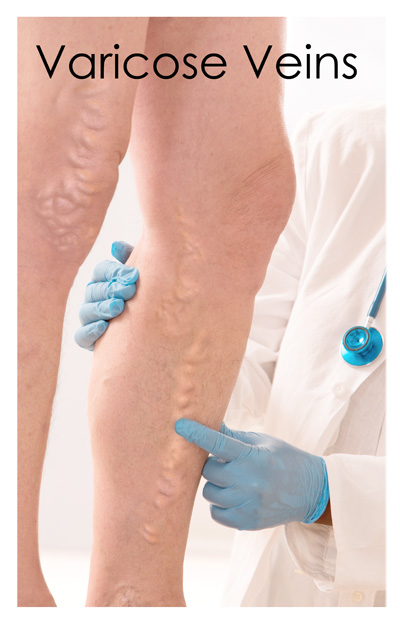Neuropathy in legs
Neuropathy in Legs? – Could be due to failed veins
Understanding the Connection Between Neuropathy and Venous Insufficiency
 Veins play a crucial role in circulating blood back to the heart. In the legs, they must work against gravity to push blood upward. When some veins fail to function properly, they may allow fluid to leak into surrounding tissues, irritating nearby nerves and potentially leading to neuropathy-like symptoms in the legs and feet. However, unlike true neuropathy, which involves permanent nerve damage, neuropathy-like symptoms linked to venous insufficiency tend to fluctuate throughout the day. These symptoms usually intensify with prolonged sitting or standing, particularly in the evening, and tend to improve with leg elevation or in the morning before lowering your legs below heart level.
Veins play a crucial role in circulating blood back to the heart. In the legs, they must work against gravity to push blood upward. When some veins fail to function properly, they may allow fluid to leak into surrounding tissues, irritating nearby nerves and potentially leading to neuropathy-like symptoms in the legs and feet. However, unlike true neuropathy, which involves permanent nerve damage, neuropathy-like symptoms linked to venous insufficiency tend to fluctuate throughout the day. These symptoms usually intensify with prolonged sitting or standing, particularly in the evening, and tend to improve with leg elevation or in the morning before lowering your legs below heart level.
The failed (varicose) veins are often not visible from the outside and can only be seen with the help of ultrasound. Several factors contribute to the development of varicose veins, including genetics, aging, prolonged standing, pregnancy, and excess weight. Common symptoms include leg heaviness, fatigue, aching, cramping, and restlessness. As pressure builds in the affected veins, blood can pool, leading to fluid leakage into surrounding tissues and causing swelling (edema). If left untreated, varicose veins can progress to chronic venous insufficiency (CVI), which may result in skin discoloration, recurrent infections, bleeding, blood clots, and non-healing leg ulcers.

Duplex Ultrasound
A frequently overlooked complication of venous insufficiency is neuropathy.
According to the Oxford Dictionary, neuropathy is a condition that affects one or more nerves, resulting in symptoms like numbness and weakness. In cases of peripheral neuropathy affecting the legs and feet, individuals may experience tingling, burning sensations, pins and needles, numbness, or muscle weakness. These symptoms often worsen at night or after extended periods of sitting or standing due to fluid buildup from leaky veins, which increases pressure and inflammation. Additionally, impaired circulation from dysfunctional veins deprives nerve tissue of oxygen and essential nutrients, further contributing to nerve damage.
 Unlike neuropathy caused by diabetes, infections, vitamin deficiencies, or injuries—which are often permanent—neuropathy linked to venous insufficiency can fluctuate throughout the day and may be reversible. Symptoms tend to worsen with prolonged sitting or standing but often improve when the legs are elevated. Research* indicates that 65% of patients with both conditions experienced significant improvement or complete resolution of their neuropathic symptoms after receiving vein treatment.
Unlike neuropathy caused by diabetes, infections, vitamin deficiencies, or injuries—which are often permanent—neuropathy linked to venous insufficiency can fluctuate throughout the day and may be reversible. Symptoms tend to worsen with prolonged sitting or standing but often improve when the legs are elevated. Research* indicates that 65% of patients with both conditions experienced significant improvement or complete resolution of their neuropathic symptoms after receiving vein treatment.
The good news is that at Alsara Vein Clinic, a simple duplex ultrasound can help determine whether venous insufficiency is contributing to neuropathy symptoms. Treating diseased veins is a safe, virtually painless process with no required downtime. All procedures are performed in a comfortable clinic setting, and most insurance providers—including Medicare and Medicaid—cover treatment for symptomatic varicose veins.
*Improvement of Neuropathy after Venous Ablation – Dobson et al, Journal of Vascular Surgery March 2020
Learn more about Alsara Vein Clinic vein treatment options on our Varicose Vein Treatments page.
Varicose Vein Treatments are coved by insurance including Medicare and Medicaid

 Treatment of ropey varicose veins may require one or more combinations of the following: Endovenous Laser Ablation, Injection Sclerotherapy (including Ultrasound Guided Sclerotherapy and Catheter Assisted Sclerotherapy), and Microphlebectomy.
Treatment of ropey varicose veins may require one or more combinations of the following: Endovenous Laser Ablation, Injection Sclerotherapy (including Ultrasound Guided Sclerotherapy and Catheter Assisted Sclerotherapy), and Microphlebectomy.
